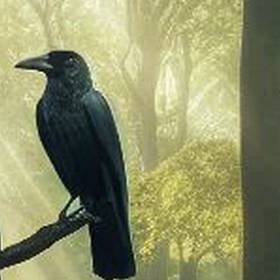Understanding Crow Behavior and Feeding Habits
Understanding crow behavior and feeding habits reveals much about their intelligence and adaptability. Crows are opportunistic feeders, consuming a varied diet that includes insects, fruits, nuts, and even small animals. They are known for their problem-solving skills, often using tools to access food.
Additionally, crows exhibit complex social behaviors, such as sharing food with family members and participating in group foraging. Their ability to thrive in diverse environments, from urban areas to rural landscapes, highlights their remarkable adaptability and resourcefulness in finding and utilizing food sources.
Additionally, crows exhibit complex social behaviors, such as sharing food with family members and participating in group foraging. Their ability to thrive in diverse environments, from urban areas to rural landscapes, highlights their remarkable adaptability and resourcefulness in finding and utilizing food sources.



